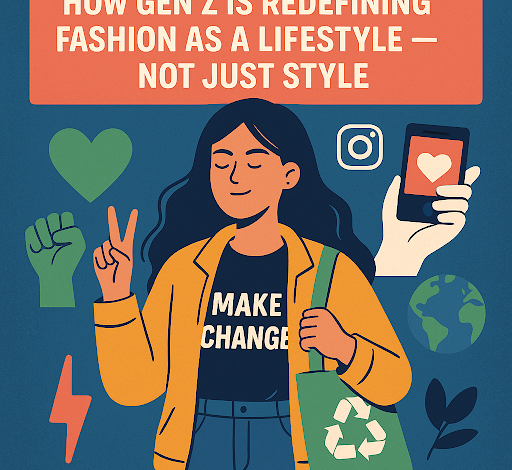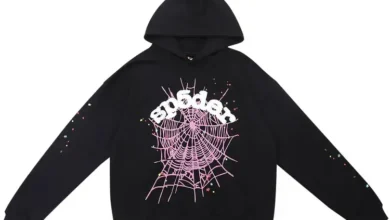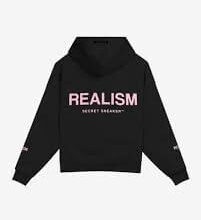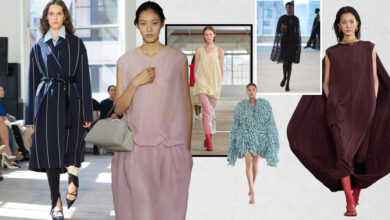How Gen Z is Redefining Fashion as a Lifestyle — Not Just Style

Gen Z has fundamentally reshaped our understanding of fashion. For this generation, clothing transcends mere aesthetics; it serves as a powerful tool for identity, activism, and community building. Fashion is viewed as a genuine lifestyle, where every choice reflects personal values, ethical beliefs, and digital presence. This shift goes beyond fleeting trends, placing a premium on authenticity, sustainability, and self-expression above all else.
Fashion is Evolving — And Gen Z is Leading the Charge
Fashion today is not merely about looking good; it encompasses being good and doing good. Unlike previous generations, who may have followed trends for social acceptance or status, Generation Z exhibits a profound connection between their clothing choices and their identities.
We view fashion not as a superficial pursuit, but as a deliberate extension of our values, beliefs, and digital personas. This article explores how fashion for Gen Z has evolved into an all-encompassing lifestyle, rather than just a matter of style, providing real-world examples of this transformative shift. Our fashion habits reflect Generation Z’s deeper engagement with these principles.
This generation, born between 1997 and the early 2010s, is particularly socially conscious and digitally native, resulting in a distinctive approach to consumption. Research consistently emphasizes their priorities:
- Sustainability and Ethical Consumption: Generation Z is profoundly concerned about environmental and social issues. A significant 62% of Gen Z shoppers prefer to purchase from sustainable brands, and an impressive 73% are willing to pay a premium for sustainable products. This commitment is so strong that nearly 70% of Gen Z members report feeling anxious about the future after encountering content related to climate change, which influences their purchasing decisions toward more responsible options. This is not merely talk; the resale market, championed by Gen Z, has experienced substantial growth, with platforms like Depop and ThredUp witnessing exponential user increases, primarily from this demographic. Internal eBay data revealed that listings for clothing and shoes containing the keyword “thrifted” surged by 400% between 2023 and 2024.
- Self-Expression and Individuality: More than any previous generation, Gen Z perceives fashion as a potent means of self-expression. They are challenging traditional fashion norms, prioritizing individuality and comfort over rigid adherence to trends. This is evident in their eclectic mix of styles, often showcased through thrifting, upcycling, and DIY fashion projects, where they personalize garments with distinctive touches. This quest for unique pieces also explains their preference for niche and independent brands, valuing originality and limited production runs over mass-produced items.
- The Influence of Digital Platforms: Social media serves as the epicenter of fashion discovery and expression for Generation Z. Platforms such as TikTok and Instagram are primary sources of inspiration, with surveys indicating that 73% of Gen Z respondents have discovered new fashion styles and brands through social media, and 68% admitted to purchasing items after seeing them on these platforms. This constant digital exposure fosters a dynamic and personalized approach to style, as they leverage online communities and micro-influencers to shape their aesthetic. They are not merely passive consumers; they actively engage, research brands for authenticity and reliability, and believe that macro trends often originate from micro-creators.
In essence, Generation Z is not merely purchasing clothing; they are investing in statements that reflect their identities, values, and vision for a more sustainable future. This transformative shift is compelling the fashion industry to adapt, prioritize transparency, and adopt practices that resonate with a generation that demands authenticity and purpose.
From Style to Statement: Understanding Gen Z Fashion Habits
For us, Generation Z’s fashion habits prioritize personalization over prominent logos. We want our clothing to express our values, rather than merely reflect fleeting trends. This generation has ushered in the rise of bold statements, particularly in streetwear. From gender-fluid silhouettes to climate-conscious graphics, our attire often speaks volumes before we even utter a word. We actively use our clothing to convey unique perspectives and advocate for something meaningful.
Consider the simple yet profound statement made by:
- Custom-printed t-shirts and hoodies featuring positive affirmations.
- Apparel featuring political messages.
- Designs that embody a minimalist rebellion against consumerism.
This approach reflects how Generation Z wears clothing—with intention. It emphasizes the creation of a narrative through fabric and design. Our Gen Z clothing style is inherently eclectic, seamlessly blending vintage finds with contemporary pieces, often challenging traditional categorizations. This freedom fosters authentic personal expression and identity.
The Power of Personal Expression and Identity
Fashion as a means of self-expression is paramount for Generation Z. We view our wardrobes as canvases that allow us to showcase our individuality instantly. This ethos influences many of our fashion and identity choices. How Generation Z utilizes clothing to convey their identity goes beyond mere aesthetics; it encompasses the communication of our beliefs, affiliations, and emotions.
We embrace unique style statements, often blending disparate elements to create something entirely new that reflects our complex identities. This dedication to fashion and individualism has paved the way for a more diverse and authentic fashion landscape.
Community & Cause: Sustainability and Ethical Fashion Driven by Youth
One of the most defining aspects of our generation’s approach to fashion is our strong commitment to ethical consumption. Generation Z and sustainable fashion are inextricably linked. Sustainability, ethical sourcing, and authentic representation are no longer optional; they are essential requirements. We actively seek out brands that reflect our values and identity. This preference often leads us to choose homegrown, inclusive, and small-batch creators over the drawbacks associated with fast fashion.
We are acutely aware of the environmental and social impacts of fashion. This awareness guides our choices toward:
Eco-friendly clothing trends that emphasize the use of recycled materials.
- Eco-friendly clothing trends that emphasize recycled materials.
- Vintage and second-hand options.
- Brands are committed to fair labor practices.
One growing category that aligns with these values is cause-based hoodies and sweatshirts, which not only look good but also speak up, often supporting mental health, environmental activism, and women’s empowerment.
Our purchasing decisions often reflect the kind of world we aspire to inhabit, making ethical fashion choices a fundamental aspect of our daily lives. The rise of sustainable fashion among young people is undeniable, with platforms dedicated to upcycling and resale gaining significant traction. We view recycled clothing trends not merely as a fad, but as a responsible approach to engaging with fashion.
The Role of Digital Culture: Social Media, Microbrands & Self-Curation Among Gen Z
The digital realm plays an unparalleled role in shaping our fashion choices. The influence of TikTok on fashion is undeniable, often sparking micro-trends that sweep through our feeds overnight. Instagram and Pinterest remain essential platforms, serving as virtual mood boards and sources of inspiration. Social media and youth style are deeply intertwined; we frequently dress for the “grid,” curating outfits that reflect our personal “brand” and online aesthetic.
Platforms such as TikTok, Instagram, and even WhatsApp groups drive the adoption of what we refer to as an outfit that goes viral, which prompts a wave of individuals styling a particular item in unique ways. This rapid dissemination allows trends to emerge and evolve at an astonishing pace.
It also illustrates how TikTok influences fashion choices, establishing it as a powerful arbiter of style. The rise of microbrands, often discovered through these platforms, is thriving precisely because they enable Gen Z to “own” highly niche identities. We follow fashion influencers that Gen Z admires not only for style inspiration but also for authentic recommendations and relatable content.
A prime example of this shift is PodLyft—a digital-first microbrand created to empower self-expression through custom apparel. Rather than following generic fashion cycles, PodLyft embraces culture-driven, cause-based streetwear that aligns with Gen Z’s values, including sustainability and social awareness.
Through Instagram storytelling, limited-edition releases, and community-led design themes, PodLyft has established a space that feels both personal and purpose-driven. It’s not merely a clothing brand; it’s a voice for a generation that wears what it believes in.
Fashion = Lifestyle: A Reflection of Daily Routines, Values, and Roles
For Generation Z, fashion as a lifestyle signifies that our clothing choices inherently reflect our daily routines, values, and diverse roles. Whether it’s the comfort-core aesthetic for studying, “flex wear” for creative pursuits, or the digital nomad vibe for remote work, our outfits align with how we spend our time. We seamlessly integrate fashion into our passions—be it music, gaming, activism, or urban exploration.
Consider how our choices reflect:
- Comfort-core: Prioritizing comfort without sacrificing style, ideal for long study sessions or casual hangouts.
- Flex wear: Outfits adaptable for various activities, from a quick workout to meeting friends.
- Digital Nomad Vibe: Relaxed yet chic looks that transition effortlessly from home office to coffee shop.
There’s a subtle but significant shift: from asking “what looks good” to “what reflects who I am right now.” This approach to lifestyle trends in youth fashion shows a conscious effort to align external appearance with internal identity. How fashion influences daily life for Gen Z is evident in everything from our choice of footwear for commuting to the statement accessories we choose for a protest.
Adapting to the Future: How Brands and Shopping Habits Are Changing
The landscape of retail is rapidly evolving, driven largely by Gen Z’s distinctive brands and shopping habits. For emerging brands and startup founders, the key takeaway is clear: authenticity wins. We gravitate towards Gen Z favorite brands that genuinely resonate with our values and offer something unique.
How Gen Z shops for clothes is multifaceted. While online platforms are dominant for convenience and selection, physical stores that offer an immersive, experiential retail journey still hold appeal. We are savvy consumers, researching brands extensively, reading reviews, and checking for ethical certifications before making a purchase.
While fast fashion brands still exist, their appeal is waning as we prioritize longevity and ethical production over fleeting trends. Popular fashion brands among youth are increasingly those that tell a compelling story, offer customization, or promote social good. Online shopping trends for teens show a clear preference for direct-to-consumer brands and social commerce.
Here’s a snapshot of Gen Z’s fashion priorities:
| Aspect | Gen Z Approach | Traditional Approach (Previous Generations) |
| Primary Driver | Personal Expression & Values | Status, Trends, Brand Loyalty |
| Brand Preference | Authentic, Sustainable, Inclusive, Microbrands | Established, Luxury, Mass-Market |
| Shopping Habits | Online, Resale, Thrifting, Research-Driven | In-store, Department Stores, Impulse Buys |
| Aesthetic Goal | Individualism, Comfort, Purposeful Statement | Conformity (to trends), Glamour, Outward Appeal |
| Social Media Role | Trend Creation, Curation, Discovery, Personal Brand | Inspiration, Brand Promotion, Celebrity Endorsement |
| Sustainability Value | High Priority, Non-negotiable | Growing Awareness, but often Secondary |
For new brands, this means embracing lean startup approaches to test lifestyle-driven apparel ideas. Don’t aim for “everyone”; instead, serve your specific tribe and speak their language. Genuine connection and shared values will build lasting loyalty.
Conclusion
The fashion world isn’t just getting louder; it’s becoming more personal. The latest trends among Gen Z reflect a profound desire for authenticity and meaning. Our generation has fundamentally redefined what “style” means, transforming it from a superficial pursuit into a holistic lifestyle. Successful brands are those that genuinely understand and adapt to this shift, recognizing that our choices are influenced by more than mere aesthetics.
The trends driven by Gen Z emphasize a future where fashion serves as an extension of our entire identity. In conclusion, fashion isn’t about conforming anymore; it’s about standing out for what matters most to you.




